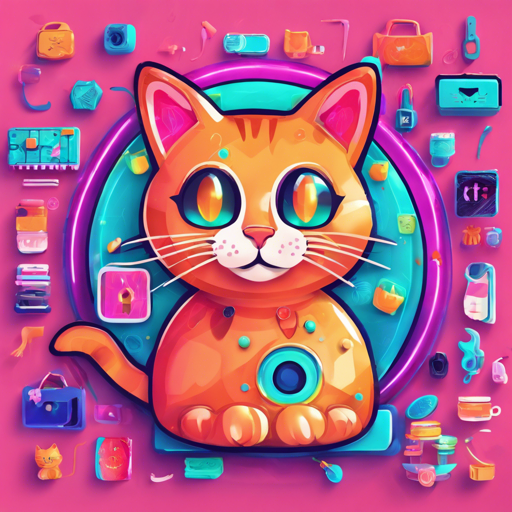Welcome to the world of Flow blockchain and non-fungible tokens (NFTs). If you’re excited to dive deep into creating your very own NFT marketplace, the Kitty Items sample app is your handy guide! This article will walk you through the necessary steps, provide troubleshooting tips, and offer helpful analogies to make complex programming concepts a breeze.
Understanding the Basics
The Kitty Items demo app is designed to teach you how to build a complete NFT marketplace. Think of it as a digital pet store where each Kitty Item, like a unique hat for a crypto kitty, is a special token unique to the flow blockchain. Here’s how we can break down this incredible project:
- Web App: A client-only application that connects directly to the Flow blockchain.
- Web Server: Demonstrates how to interact with Flow using a Node.js backend.
- Cadence Code: Contains smart contracts and scripts that define the marketplace logic.
Let’s Get Started!
Follow these steps to launch your own NFT marketplace:
1. Install Dependencies
Before diving in, ensure you have the following installed:
- NodeJS v16.x or above
- Flow CLI v0.39.1 or above
- Python v3.6 or above
2. Clone the Project
Open your terminal and run the following command:
git clone --depth=1 https://github.com/onflow/kitty-items.git3. Install Packages
Navigate to your project directory and install packages using:
npm installNote for Mac M1 users: Run this command in the .web directory:
npm install -D @next/swc-darwin-arm644. Local Development
To start the application in your local environment, run:
npm run dev:emulatorThis will boot up the Flow Emulator and FCL Development Wallet.
5. Testnet Development
If you want to develop on the testnet, follow this command:
npm run dev:testnetVisualizing the Flow
Imagine you’re setting up a small cozy shop in a digital village. Your marketplace, the Kitty Items, operates like a community hub where each item (hat) you sell not only has a unique design (NFT) but also a unique history (smart contracts) that verifies its authenticity.
All your web app needs to do is interact with visitors (users) and fetch items (Kitties) available for sale using scripts (Cadence code) that communicate with your blockchain (Flow). No extra overhead – just direct conversations between the visitors and your inventory!
Troubleshooting Tips
If you run into issues while developing your own Kitty Item marketplace, here are some common solutions:
- **Non-Intel Issues:** If you’re on a non-Intel based system, don’t forget to run:
npm install -D @next/swc-darwin-arm64npm rebuildpm2 list- 8080: Flow emulator
- 3569: Flow emulator
- 3000: Kitty Items API
- 3001: Kitty Items web app
- 8701: FCL dev-wallet
For more insights, updates, or to collaborate on AI development projects, stay connected with fxis.ai.
Concluding Thoughts
As you set out on your journey to build your own NFT marketplace, remember that understanding the keys to successful implementation can unlock a world of possibilities.
At fxis.ai, we believe that such advancements are crucial for the future of AI, as they enable more comprehensive and effective solutions. Our team is continually exploring new methodologies to push the envelope in artificial intelligence, ensuring that our clients benefit from the latest technological innovations.

